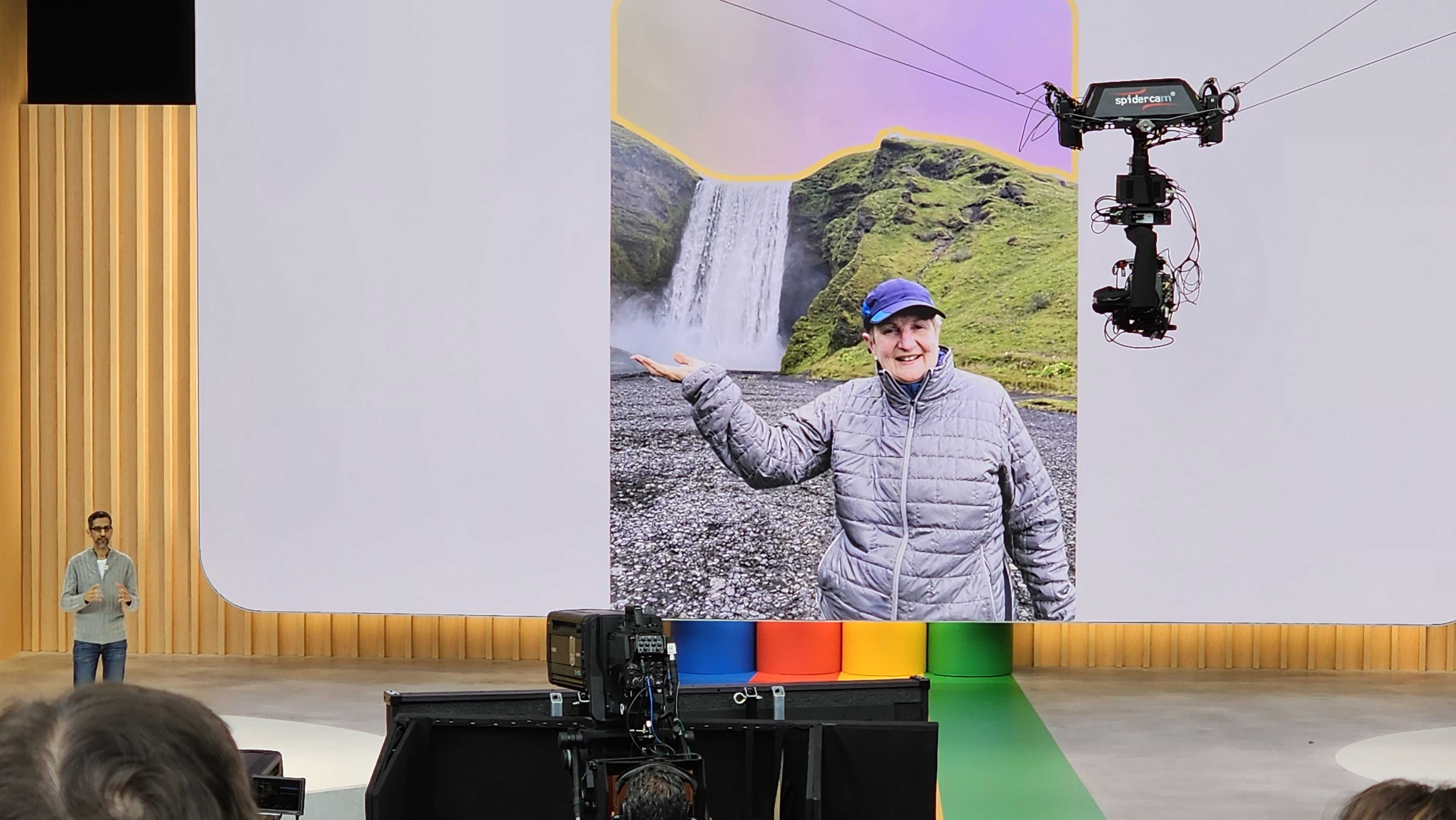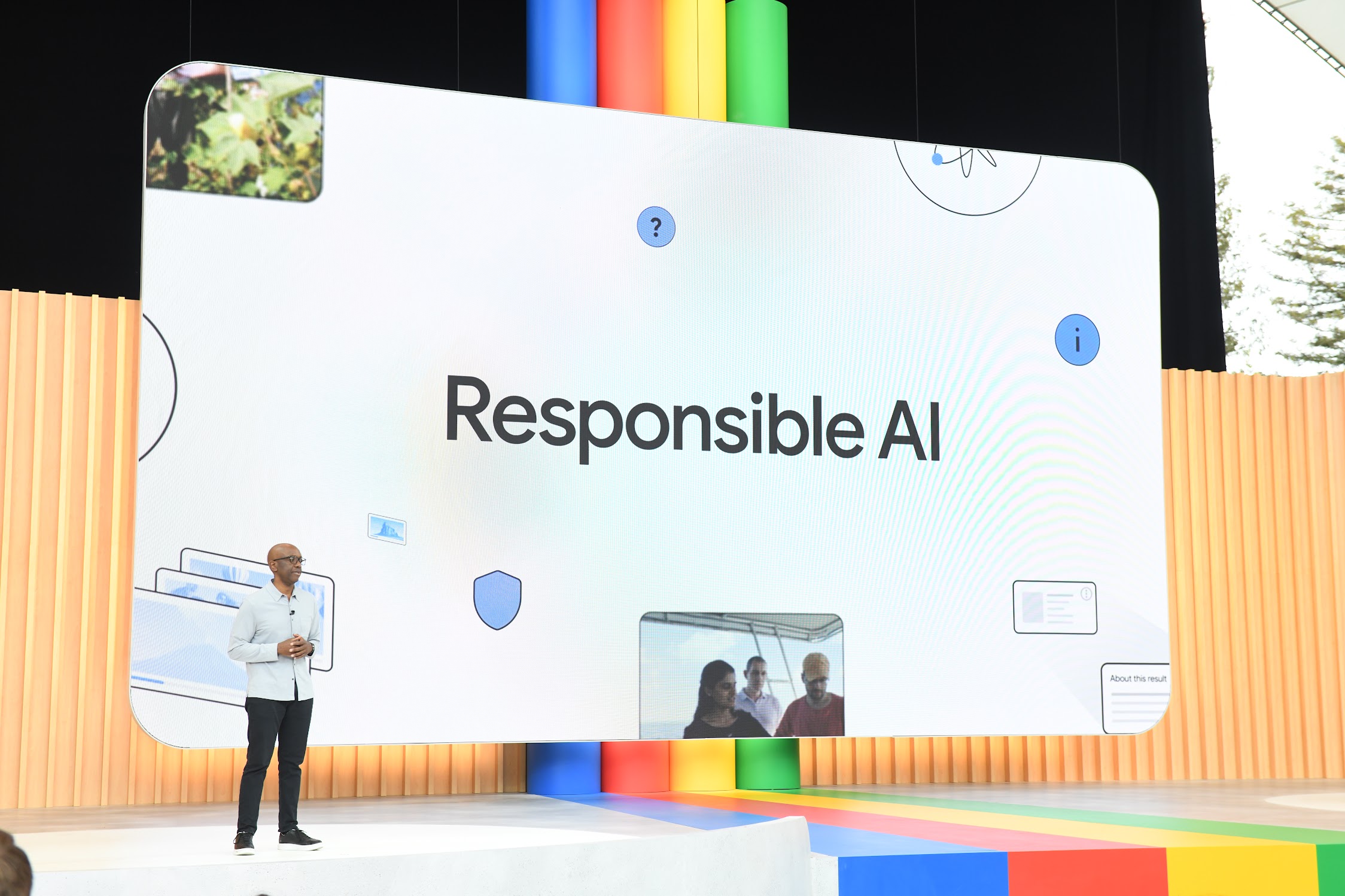Google's Magic Editor is making bad photos obsolete, but is that a good thing?
Forget Magic Eraser. Magic Editor is coming, for better or worse...

Sign up for breaking news, reviews, opinion, top tech deals, and more.
You are now subscribed
Your newsletter sign-up was successful
Whispers of Google Photos getting a redesign to make it more seamless to use for editing may have gone unconfirmed during the Google I/O 2023 conference, but that doesn’t mean Google didn’t have anything to satiate the Instagram-obsessed set. On the contrary, it offered something even better.
Sure, a new editing-friendly interface would have been nice, but it’s not exactly exciting, whereas a new generative AI tool christened Magic Editor, which will help you make Gram-worthy photos? Well, that just slaps.
AI was the overarching theme at the Google I/O 2023 so it’s hardly surprising that it also announced a new AI tool for Photos. What is surprising, however, is how advanced Magic Editor is going to be when “fixing” your less-than-perfect images.
Using semantic understanding and generative AI, the Magic Editor – which I’m pretty sure will also be available on the new Pixel Tablet – will allow users to make Photoshop advanced-level enhancements like replacing a gloomy sky, resizing and repositioning a subject, and fixing cut-off elements in an image without requiring much photo editing experience from them.
Of course, we still have to wait until later this year to see how this AI feature actually does in practice. But, if it is just as impressive as Google made it out to be at the conference, none of us need to learn basic photography techniques ever again. And it’ll be so much easier for everyone to pretend on social media that they have picture-perfect lives.
And therein lies the problem.
Is this responsible AI?

Make no mistake; the Magic Editor sounds like it’s going to be an amazing tool, and it’s going to help everyone – from photographers and influencers to regular folks – salvage images with potential, but aren't quite right, in the first place. And I’m in no way suggesting that this feature is going to be inherently problematic.
Sign up for breaking news, reviews, opinion, top tech deals, and more.
But, it could also have problematic applications, especially in this modern age where we all expect everything to just come easily and where most of what we perceive to be real online actually isn't.
I am fully aware that we already have impressive photo editing apps out there that do something similar. Skylum's Luminar, which integrates AI for photo editing, has been doing this for years and doing a stellar job of it. And body positivity influencers on the Gram have long exposed influencer-favorite mobile apps that are so easy to use, even the Photoshop-uninitiated can make themselves look runway-ready in minutes.
But creating such apps can have consequences as well, especially when they're made in such a way where users barely need to lift a finger.
Why learn how to frame a photo properly before clicking that shutter button when we can simply ask the Magic Editor to fix it later? Why spend all that effort working out and taking care of ourselves when the Magic Editor can simply make us look as attractive as the rest of the Kardashian doppelgängers on TikTok? (Note that Google hasn’t confirmed if the tool can actually tweak people’s faces; I’m just imagining Magic Editor to come with similar features as the Facetune app). Why even bother making memories at all when you can simply tweak a basic photo and make it look to the rest of the world like you’re living your life when in actuality, you’re on the couch, wasting away watching videos on your phone?
With a tool like the Magic Editor easily accessible, most of us are likely going to choose the easy way, one that in the process would also make us (and our lives) look like it’s the stuff of an influencer’s Instagram feed. And in the process, we will lose out on many things – the joy of true photography where each exposure has been carefully and painstaking thought through, learning to celebrate our flaws but also doing the hard work to better ourselves, even not just accepting but appreciating that life itself isn't supposed to be perfect because it's in our mistakes where we learn to grow and in its unfortunate events where we learn to patience and resourcefulness.
Google repeatedly insisted at I/O that it's committed to developing bold and responsible AI. The Magic Editor certainly is going to be bold, no doubt about that. But is it going to be responsible?

Michelle Rae Uy is the former Computing Reviews and Buying Guides Editor at TechRadar. She's a Los Angeles-based tech, travel and lifestyle writer covering a wide range of topics, from computing to the latest in green commutes to the best hiking trails. She's an ambivert who enjoys communing with nature and traveling for months at a time just as much as watching movies and playing sim games at home. That also means that she has a lot more avenues to explore in terms of understanding how tech can improve the different aspects of our lives.